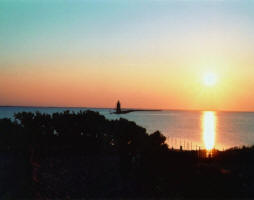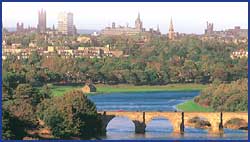 SedNet Newsletter September 2010
SedNet Newsletter September 2010
Newsletter - September 2010
Website: www.sednet.org
Compiled by: Marjan Euser (marjan.euser@deltares.nl)
Subscription Service:
SedNet Secretariat (marjan.euser@deltares.nl)
Disclaimer: SedNet is
not responsible for faults due to incorrectness of info in this
newsletter
Previous issues: www.sednet.org
CONTENTS
7th SedNet conference:
Sediments and Biodiversity: bridging the gap between science and
policy
More than 100 abstracts have been submitted for the conference to be held on 6-9 April 2011 in Venice. In the next couple of weeks the abstracts will be selected for oral or poster presentation. Submitters will be informed in the course of October of the outcome of the selection procedure.
The program for the special sessions, which will take place prior to the conference, is under construction. The following sessions will be held:
- Sustainable dredging of Mediterranean Ports: the future for sediment management
- Dredged materials assessment nowadays
- The importance of sediment for biodiversity
- Sediments in a changing environment
It is anticipated that in November 2010 the program will be disseminated and registration will be opened.
SedNet Round Table Discussion 2009 on River Basin Sediment Management
Linked to the 6th SedNet Conference, a Round Table discussion
was held 6 and 7 October 2009. This Round Table discussion built on the results
of the SedNet Round Table Discussion on River Basin Sediment Management held in
Venice in 2006 (see www.sednet.org/roundtable.htm). In the SedNet
e-newsletter special on river basin management plans (spring 2009 - see
E-News_special_on-RBMP_April2009.pdf )
the SedNet steering group concluded: “These few pages on WFD compliant River
Basin Management and sediment management show a great variety. The river basins
are different in size and challenges, and the solutions are as diverse as the
recognition of sediments in the plans is.”
On this background SedNet organised another Round Table discussion preceding the Hamburg conference. The goal was to discuss the position of sediment management in water management and in regional or local developments and to explore new pathways to effectively link sediment management initiatives to RBMP’s.
The invited participants represented river commissions, governmental bodies, water agencies, port authorities, research institutes, consultancies, NGO’s, etc. Rivers represented where Douro, Ebro, Danube, Sava, Drava/Mura, Elbe, Rhine, Scheldt and Thames. The program of the Round Table was based on the outcome of a questionnaire sent earlier to the participants and an illustrative river basin case. During two days, a large number of topics were covered: holistic system understanding, dealing with uncertainty, better linkage of sediment management to WFD objectives or to other plans, communication (especially about the link between sediments and ecosystem integrity), stakeholder involvement and ecosystem services as a model to help the stakeholder process.
A report about the outcome of the Round Table discussion can be found on the website (Integration-of-Sediment-in-River-Basin-Management.pdf).
Guidance on Sediment and
Biota Monitoring
Mathias Ricking, FUB
Berlin
The Guidance on Sediment and Biota Monitoring has been issued in
May 2010. It assists in setting up a monitoring program for surveillance and
compliance monitoring according to the WFD. It covers freshwater ecosystems as
well as the transition and marine zone. For applying EQS different options are
possible, whether to apply the EQS for the whole water phase or to set up new
EQS for SPM (suspended particulate matter), SEPM (settling particulate matter –
collected in traps) or sediments beside biota, keeping in mind not to exceed the
EQS for a good ecosystem quality in the water phase. The analysis for the PS and
related compounds is performed on the < 63 µm for the particulate phase.
Further normalisation factors like TOC, Li, Al are recommended but not
mandatory.
In the case of performing a surface sediment monitoring, sampling
once every year for compliance and every third year for trend monitoring is the
recommended minimum frequency. In the case of SPM sampling with passive systems
a minimum of 4 samples per year is advised and by applying a flow-through
centrifuge in minimum 2 times a month sampling is recommended. The time schedule
has to take into account the reporting time scale of 6 years for the WFD. A
short presentation is downloadable on the SedNet website. (Implementation-sediments_Mathias-Ricking.pdf).
The
Guidance document is available here.
The European Water Framework
Directive beyond 2010: let actions speak louder than words
Scientific Committee WFD Lille 2010 Conference
The first generation of WFD River Basin Management Plans is now available. This is a formidable achievement and a great step towards addressing Europe’s deteriorated river systems. However, plans are only words: only the actual implementation of the selected measures will result in achievement of good ecological and chemical status. The WFD Lille 2010 Conference pointed out that a lot of new, but so far unused scientific knowledge is available to improve the effectiveness of selected measures or to inspire the introduction of complementary measures. Furthermore, the complexity in terms of the functioning of the water system, its interaction with the socio-economic system and the uncertain consequences of climate change, urges a ‘learning-by-doing’ approach. This approach should be applied in well-designed, -coordinated and -monitored learning catchments.
The full conference position paper is available here.
Competition of Royal Academy for Overseas Sciences
The Royal Academy for Overseas Sciences in Belgium organises every year a competition in order to stimulate high-quality scientific research regarding problems inherent to overseas regions. The competition is open to all scientists worldwide without any age restriction. Members of the Academy are not allowed to participate in the yearly competition. The work submitted for the yearly competition of the RAOS should be an original, recent and unpublished scientific manuscript, reaching at least the level of a PhD thesis.
Two of the six topics that can be addressed for the 2011 competition are very relevant for SedNet:
- Question 5: A contribution is requested to the study of the chemical, mineral and biological composition of dredged material extracted from tropical riverbeds, including estuaries and harbour areas, so as to reduce pollutant dumping at their source and/or re-use or store dredged material in such a way that the environment is protected on a permanent basis.
- Question 6: A study is requested about the positive and negative impacts of dams' construction on rivers in developing countries. Their development is quite often hindered by lack of water for a large part of the year. Possible effects of climate changes are likely to make the situation worse.
Studies must reach the secretariat of the Academy before 1 March
2011.
More info on the following website: www.kaowarsom.be
SCARCE - Assessing and predicting effects on water quantity and quality in Iberian rivers caused by global change
Water resources in Spain are subjected to rising pressures, related to the socioeconomic activities of an increasing human population, expressed by accelerated land use changes, and the specific climate characteristics of Mediterranean countries. The main panels on climate change predict a future scenario of increasing frequency of floods and extended droughts in the Iberian Peninsula, mostly in the Mediterranean basin. This will certainly add to the currently existing problems, and will probably affect the available water resources, their quality, the functioning of associated ecosystems, especially rivers and their aquifers, and the ecosystem services they provide.
SCARCE is a project that aims to describe and predict the relevance of global change impacts on water availability, water quality and ecosystem services in Mediterranean river basins of the Iberian Peninsula, as well as their impacts on the human society and economy. SCARCE will study different aspects of SEDIMENTS such as sediment transport dynamics, rivers´s morphosedimentary structure and physical habitat, comparison of sedimentary processes and chemical quality parameters under water scarcity.
More info on www.idaea.csic.es/scarceconsolider
TIDE - Tidal River Development
TIDE focuses on tidally influenced estuaries of the Elbe (D),
Weser (D), Scheldt (BE/NL) and Humber (UK) which are characterised by large
sediment transportation and heavily used as shipping channels leading to large
ports. The ecosystem services and estuarine habitats are threatened and need to
be considered to ensure both, economic benefits and the maintenance of
ecologically important areas. At the same time decision-makers at these
estuaries are faced with an increasingly challenging legal and global economic
framework. By implementing the knowledge and solutions generated in previous
projects such as New!Delta, Harbasins and the achievements of SedNet, and
integrating the needs for economic development of the port areas with the needs
of the ecosystems, TIDE seeks to provide tools and strategies for integrated
management and planning in these estuaries.
TIDE brings together ten partners
– including port authorities, universities, and environmental and public
agencies – from four countries, under the leadership of the Hamburg Port
Authority. The three-year project (2010-2012) will improve knowledge on estuary
functioning through resilience quantification and inter-estuarine comparisons,
raise public awareness of the issues at stake, improve policy mechanisms and
instruments, and gather and analyse mitigation and compensation measures. By
applying for the first time a unified ecosystem approach to guide the process of
integrated participatory management planning, TIDE will lead the path towards a
more sustainable and effective use of large scale investments made into
mitigation and compensation measures in estuaries.
The TIDE project is
supported by the ERDF-financed INTERREG IV B North Sea Programme.
www.tide-project.eu/
www.northsearegion.eu/ivb/home/
MIRAGE - Mediterranean Intermittent River Management
Specific Targeted Research Project - Cooperation
Project No.
211732
This project is supported by funding from the specific programme 'Cooperation,' theme 'Environment (including Climate Change)' under the 7th Research Framework Programme of the European Union.
The proposed research project MIRAGE (Mediterranean Intermittent
River ManAGEment) aims to provide specific key knowledge for a better assessment
of ecological integrity (or ecological status in the words of the European Water
Framework Directive) in Mediterranean temporary streams.
MIRAGE will develop
the practical measures necessary to understand their impact on nutrient
dynamics, toxic substances and organic matter and to link these aspects to an
Integrated flood management.
WP 6 deals with “Sediment regime”:
Expected outcome: Advance
in knowledge of particulate dynamics, the influence on water quality and
guidance on related measures in temporary waters.
For more info see www.mirage-project.eu/
RISKBASE
Towards
well-informed, adaptive and participatory river basin management
The key-findings and recommendations of the RISKBASE project (that was completed end of 2009) can be found on www.riskbase.info.
Upcoming events
2010:
25-27 October 2010:
International Symposium on Sustainability Science: The Emerging Paradigm and the
Urban Environment. PSEG Institute for Sustainability Studies, Montclair State
University, Montclair NJ, USA.
http://csam.montclair.edu/sustainabilitystudies/conferences/
2011:
6-9 April 2011: 7th
International SedNet conference “Sediments and Biodiversity: bridging the gap
between science and policy”, hosted by Thetis SpA, Venice, Italy.
www.sednet.org
2-6 May 2011: Coastal Sediments ’11; 7th International
Symposium on Coastal Engineering and Science of Coastal Sediment Processes.
Miami, Florida, USA.
http://coastalsediments.cas.usf.edu/
19-23 June 2011: 12th International Symposium on the
Interactions between Sediments and Water, Dartington, Devon, England. Organised
by the International Association for Sediment Water Science (IASWS)
www.geog.plymouth.ac.uk/IASWS2011
10-11 November 2011: CEDA Dredging Days ‘Dredging and
Beyond’, conference centre Ahoy, Rotterdam, the Netherlands.
www.cedaconferences.org/dredgingdays2011
| Contact information |
SedNet secretariat: Mrs. Marjan Euser, Deltares , P.O. Box 85467, NL-3508 AL Utrecht, The Netherlands
(email: marjan.euser@deltares.nl ) |
|---|---|
| News type | Inbrief |
| File link |
http://www.sednet.org/news/news.htm |
| Source of information | SedNet |
| Subject(s) | AGRICULTURE , ANALYSIS AND TESTS , CHARACTERISTICAL PARAMETERS OF WATERS AND SLUDGES , DRINKING WATER , DRINKING WATER AND SANITATION : COMMON PROCESSES OF PURIFICATION AND TREATMENT , ENERGY , FINANCE-ECONOMY , HEALTH - HYGIENE - PATHOGENIC MICROORGANISM , HYDRAULICS - HYDROLOGY , INDUSTRY , INFORMATION - COMPUTER SCIENCES , INFRASTRUCTURES , MEASUREMENTS AND INSTRUMENTATION , METHTODOLOGY - STATISTICS - DECISION AID , NATURAL MEDIUM , POLICY-WATER POLICY AND WATER MANAGEMENT , PREVENTION AND NUISANCES POLLUTION , RIGHT , RISKS AND CLIMATOLOGY , SANITATION -STRICT PURIFICATION PROCESSES , SLUDGES , TOOL TERMS , TOURISM - SPORT - HOBBIES , WATER DEMAND , WATER QUALITY |
| Geographical coverage | n/a |
| News date | 30/09/2010 |
| Working language(s) | ENGLISH |
 you are not logged in
you are not logged in





